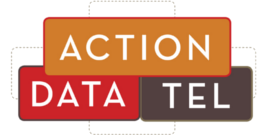Artificial Intelligence in the Workplace: What Small Businesses Need to Know

Just like any new tool, there’s a lot of chatter and excitement surrounding Artificial Intelligence (AI) right now. It feels like we have officially stepped a foot into the future—Artificial Intelligence was something from a sci-fi movie 40 years ago (yes, that was the 80s and YES we feel old) and now it’s finally here. Artificial Intelligence tools are not only HERE, they’re now plentiful. Tools like ChatGPT, Gemini, and Copilot are in ready supply, and they’re being used to create content, automate processes, respond to customers, and even help with tasks such as spreadsheets, coding, and adaptive scheduling.
Artificial Intelligence is a powerful tool, saving time, boosting productivity, and often offering support that can rival that of an assistant. Like any powerful tool, if used incorrectly, it can come with its own host of problems—especially when it comes to sensitive data and your company’s security.
Even small businesses are at risk.
The unintended implications of Artificial Intelligence tools
The technology itself isn’t the issue—it’s how people are using it. If employees thoughtlessly copy and paste sensitive data into public Artificial Intelligence tools, that information doesn’t just disappear — it can be stored, analyzed, or even used to train future models. Which means your confidential or regulated data could be exposed without you ever realizing it.
Samsung engineers actually leaked internal source code to ChatGPT in 2023 by mistake. It was such a massive privacy concern that the company banned use of public Artificial Intelligence tools altogether, according to Tom’s Hardware.
What if the same thing is happening in your office? Imagine an employee pasting client financials or medical data into ChatGPT to “get help summarizing,” because they don’t know the risk or understand the implications. Not only do you now have private information exposed in a matter of seconds, but you’ve got a major compliance violation on your hands.
Artificial Intelligence Prompt Injection: a new threat
While unintentional leaks are something to be aware of and trained on, the bigger issue at hand is prompt injection: a sophisticated technique hackers are employing to gain access to sensitive data. They’re manipulating Artificial Intelligence into giving up sensitive data by hiding malicious instructions inside e-mails, PDFs, and YouTube captions. When Artificial Intelligence processes that content, it can be tricked into sharing sensitive data or doing something it shouldn’t do.
It’s a nefarious way to turn Artificial Intelligence from a tool that helps into a tool that harms.
Why small businesses are particularly vulnerable
 Artificial Intelligence is a relatively new tool, despite the explosive traction it has gained over the last year. Because of this, most small businesses haven’t even thought about monitoring AI use internally. Employees are adopting new tools on their own, which is a fantastic example of proactive initiative. They’re doing so with good intentions but without clear guidance. Most of them mistakenly assume that Artificial Intelligence tools are just smarter versions of Google. Very few realize that what they’re pasting is permanently being stored, and potentially being seen by someone else.
Artificial Intelligence is a relatively new tool, despite the explosive traction it has gained over the last year. Because of this, most small businesses haven’t even thought about monitoring AI use internally. Employees are adopting new tools on their own, which is a fantastic example of proactive initiative. They’re doing so with good intentions but without clear guidance. Most of them mistakenly assume that Artificial Intelligence tools are just smarter versions of Google. Very few realize that what they’re pasting is permanently being stored, and potentially being seen by someone else.
Despite the surge in popularity, Artificial Intelligence is still in early infancy so to speak. Few companies have policies in place to train employees on what is safe, and how to use AI. HIPAA itself hasn’t even caught up to updated Artificial Intelligence-specific compliance rules yet.
That information doesn’t just disappear — it can be stored, analyzed, or even used to train future models. Which means your confidential or regulated data could be exposed without you ever realizing it.
Taking control: What you can do right now
Banning AI isn’t a step you need to rush out and take. You DO need to take control of it’s use in your business.
Here are 4 steps you can take to get started:
1. Create an AI Usage Policy
Define which tools are approved, what types of data should never be shared and who to go to with questions.
2. Educate your team.
Help your staff understand the risks of using public AI tools and how threats like prompt injection work.
3. Use secure platforms.
Encourage employees to stick with business-grade tools like Microsoft Copilot, which offer more control over data privacy and compliance.
4. Monitor AI use.
Track which tools are being used and consider blocking public AI platforms on company devices if needed.
The bottom line about AI
Artificial Intelligence isn’t going anywhere — it’s here to stay, and it’s only going to continue maturing. Businesses that learn how to safely adopt AI use in their daily operations will surely excel, but those that ignore the risk are setting themselves up not only for failure, but for catastrophe. One careless employee or AI use that isn’t thoughtful and intentional could expose your business to hackers, compliance violations, and worse.
Let’s have a quick chat to make sure your AI use isn’t putting your company at risk. We’ll help you build a smart, secure AIP (Artificial Intelligence Policy) and show you how to protect your data without slowing your team down.
Schedule a call with us now by clicking HERE.
